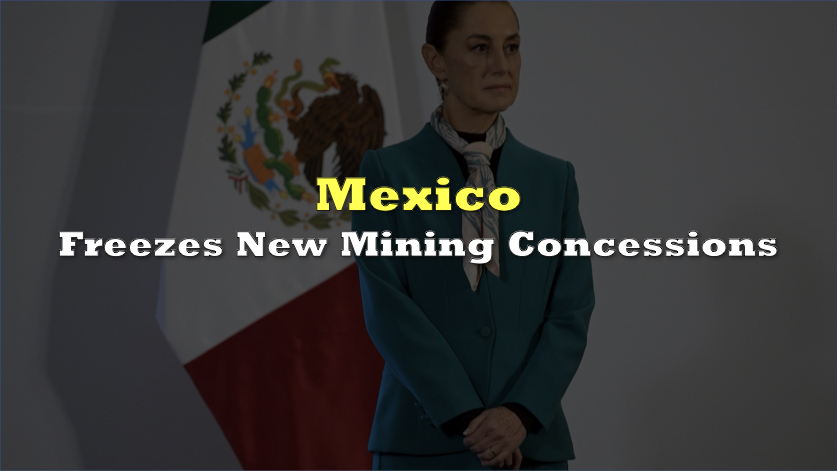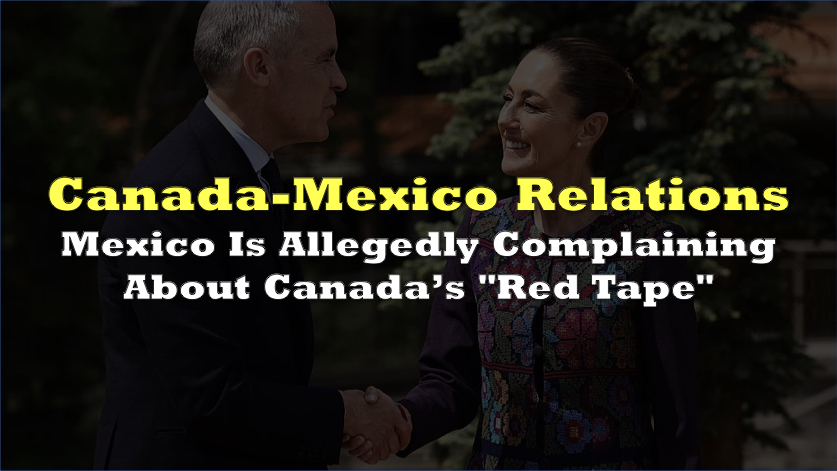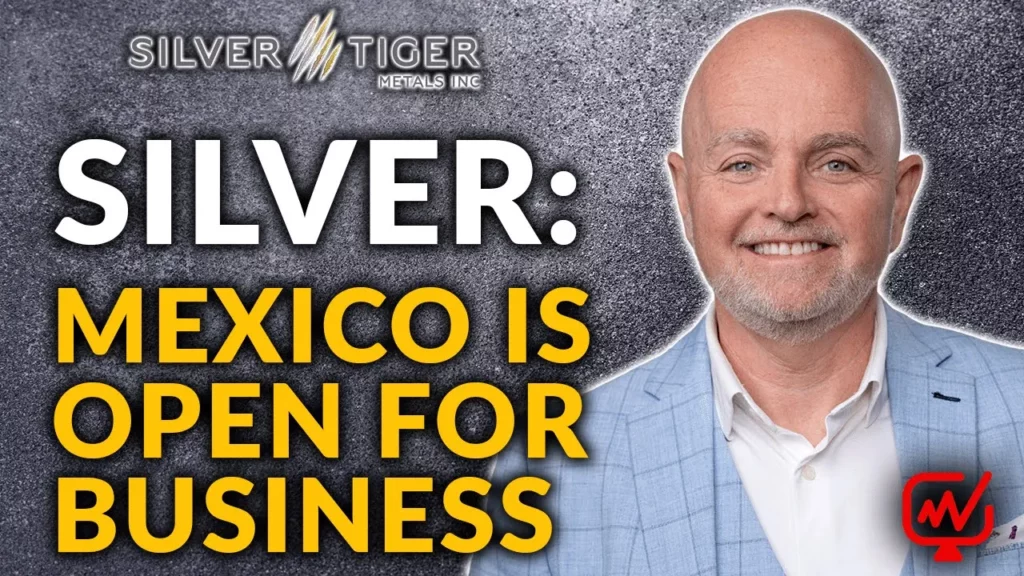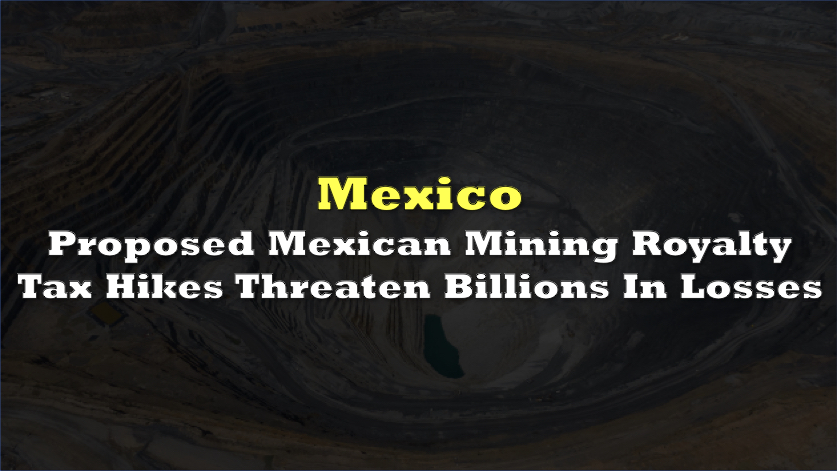As Claudia Sheinbaum assumes her role as Mexico’s first female president, one of the most pressing questions in the mining sector is whether her administration will follow through on a potential ban on open-pit mining, a hotly debated issue during Andrés Manuel López Obrador’s (AMLO) presidency.
While AMLO’s administration faced criticism from environmental groups for not enacting stricter regulations on mining, his government also placed significant barriers in the way of mining permits, creating uncertainty for the industry. However, with Sheinbaum now in office, there are signs that her government may be shifting away from such a ban, offering a more pragmatic approach to Mexico’s mining policies.
Sheinbaum’s 100-Point Program
In her highly anticipated inaugural address, Sheinbaum laid out a comprehensive 100-point plan detailing her vision for Mexico, covering everything from anti-corruption reforms and women’s rights to renewable energy and labor law changes. Conspicuously absent, however, was any mention of a ban on open-pit mining, a policy that was seen as a possibility during the final months of AMLO’s term.
Industry analysts and stakeholders quickly noted this omission. “Claudia Sheinbaum just released her 100 promises as president of Mexico. Guess what she didn’t mention? An open-pit mining ban,” posted Brandon Beylo, an industry expert who closely monitors the Mexican mining sector. This absence has led to speculation that Sheinbaum may be taking a different stance from her predecessor, a move that could have major implications for Mexico’s economy, which relies heavily on mineral exports, especially silver and gold.
Claudia Sheinbaum just released her 100 promises as president of Mexico.
— Brandon Beylo (@marketplunger1) October 4, 2024
Guess what she didn't mention?
An open pit mining ban.
If true, could be a game changer for Mexican mining stocks as most of them have traded like the ban was guaranteed. pic.twitter.com/Sfyx7ikAvu
During AMLO’s presidency, the mining sector was largely frustrated by delays in new mining permits and a regulatory environment that appeared increasingly hostile to large-scale mining operations. Although AMLO did not enact a formal ban on open-pit mining, his government halted new permits, particularly for foreign companies, and introduced policies aimed at increasing state control over natural resources like lithium.
The potential ban on open-pit mining, which environmental advocates pushed for, remained a looming possibility. Open-pit mining, a method often used for extracting minerals close to the surface, is widely criticized for its environmental impact, including deforestation, water contamination, and destruction of ecosystems.
Despite these concerns, the Mexican economy has long depended on its mining sector, with open-pit mining accounting for a significant portion of mineral production.
Sheinbaum’s silence on the matter, combined with her broader focus on sustainable energy and economic growth, suggests that her administration may prioritize balancing environmental protection with economic interests.
Boost for Mining Stocks
Sheinbaum’s apparent shift away from a potential ban has already sparked optimism within the mining industry. Mexican mining stocks, which had been trading with caution due to fears of stricter regulations, are now showing signs of recovery. Analysts believe that a more lenient stance on open-pit mining could boost investment and encourage growth in a sector that contributes significantly to Mexico’s GDP.
Glenn Jessum, CEO of Silver Tiger Metals (TSXV: SLVR), a developer in Mexico’s mining industry, commented on the changing climate under Sheinbaum’s administration during a recent interview.
“Mexico has been beaten down in mining across the board, especially during AMLO’s tenure, when permits were nearly impossible to secure. With Sheinbaum coming into power, we’re excited about what this means for the future,” Jessum said.
He pointed out that despite the difficulties, his company had managed to raise significant capital for mining projects in Mexico.
“We’ve proven we have a commercial project ready to build. Now, with the new government, we expect to get the permits we need,” he added.
While Sheinbaum’s omission of the ban has brought hope to the mining industry, it remains unclear how her administration will address the environmental concerns that have long accompanied open-pit mining.
During her campaign, Sheinbaum emphasized the importance of sustainability and committed to promoting renewable energy and reducing carbon emissions. Her administration has laid out ambitious goals to increase the share of renewable energy to 45% by 2030 and to ensure energy sovereignty by strengthening state-owned companies like Pemex and the Comisión Federal de Electricidad.
In this context, Sheinbaum may seek to balance Mexico’s economic reliance on mining with the urgent need for environmental protection. Some analysts suggest that her government could introduce stricter environmental regulations for mining operations, including requirements for water management and land restoration, without enacting an outright ban on open-pit mining.
Nearshoring
Another factor influencing Sheinbaum’s likely softer stance on open-pit mining is Mexico’s growing role in nearshoring, where international companies, particularly from the United States, relocate their manufacturing closer to home. This trend has been accelerated by global supply chain disruptions and the need for more reliable production hubs. Mining is a crucial component of this process, as metals like copper, silver, and lithium are essential for the production of electronics, batteries, and other goods.
“Mexico has become a major player in nearshoring, and the mining sector plays a critical role in supplying the materials needed for this industrial shift,” said Jessum.
With Sheinbaum’s government poised to benefit from this economic opportunity, a hardline stance on open-pit mining could undermine efforts to position Mexico as a key player in global supply chains, particularly in industries like electric vehicles and renewable energy technology.
In fact, Mexico recently surpassed China as the largest exporter to the United States, driven largely by nearshoring. This shift has brought newfound attention to Mexico’s natural resources, and Sheinbaum’s government will need to carefully navigate these economic demands while addressing domestic and international environmental concerns.
Information for this briefing was found via the sources mentioned. The author has no securities or affiliations related to this organization. Not a recommendation to buy or sell. Always do additional research and consult a professional before purchasing a security. The author holds no licenses.









